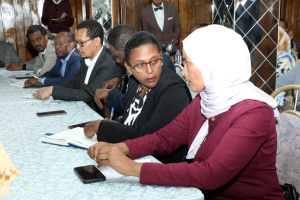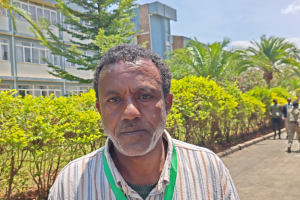
ADDIS ABABA – Addis Ababa Science and Technology University (AASTU) hosted a workshop yesterday under the theme: “Strengthening University-Industry Collaboration for Advancing Innovation, Research Capability, and Technology Transfer.”
Speaking at the discussion, the Manufacturing Industry Development Institute Director General Milkesa Jagama (PhD) emphasized that higher education institutions in Ethiopia have not yet reached their full potential due to weak connections with industries.
He stressed that fostering strong linkages between academia and the industrial sector is crucial for the country’s sustainable economic growth.
Milkesa advocated for a university teaching and learning system that integrates practical, industry-related experiences.
Citing reports from developed nations, he noted that their successful research and development initiatives directly translate into practical applications that support industries. As a result, these countries experience lower youth unemployment rates, as their education systems prioritize practical skills, leading to rapid economic growth.
“In this regard, Ethiopia should adopt a similar approach by strengthening the practical skill development aspect of its education system,” he urged.
AASTU’s Research and Technology Transfer Vice President Abraham Debebe (PhD) highlighted that Ethiopia has made significant investments in the education sector to develop a practical, industry-aligned education system. He reiterated the government’s commitment to equipping students with hands-on skills while fostering stronger university-industry collaborations.
He also emphasized that discussions at the workshop called for increased research output and productivity within universities. Strengthening university-industry partnerships, he noted, would better prepare students with the practical knowledge needed for success in the workforce.
The UNESCO Liaison Office to the African Union Commission (AUC) and the Economic Commission for Africa (ECA) Head Rita Bissoonauth (PhD) underscored the importance of enhancing higher education institutions’ capacity to meet national skill demands.
She emphasized that fostering collaboration between academia and industry is essential for achieving the Sustainable Development Goals (SDGs), promoting entrepreneurship, and bridging the growing gap between graduate skills and employer expectations.
She further highlighted that UNESCO’s Operational Strategy for Priority Africa (2022–2029) aligns with the African Union Agenda 2063, which aims to build integrated, inclusive, and high-quality education systems across the continent.
BY FIKADU BELAY
THE ETHIOPIAN HERALD FRIDAY 4 APRIL 2025





